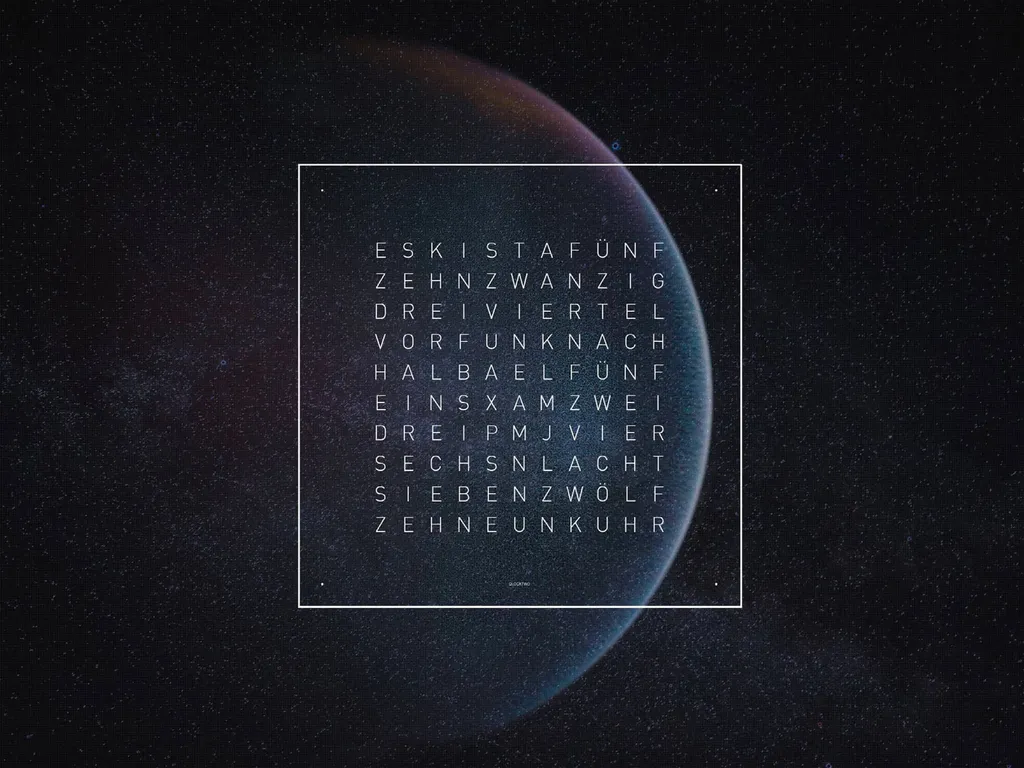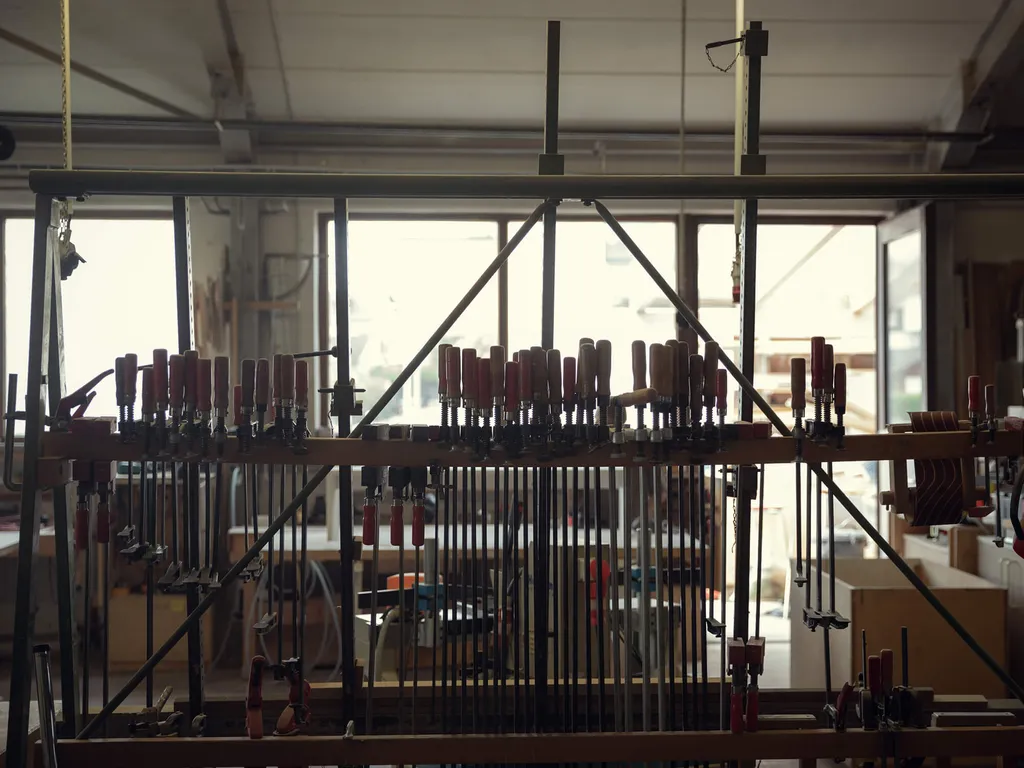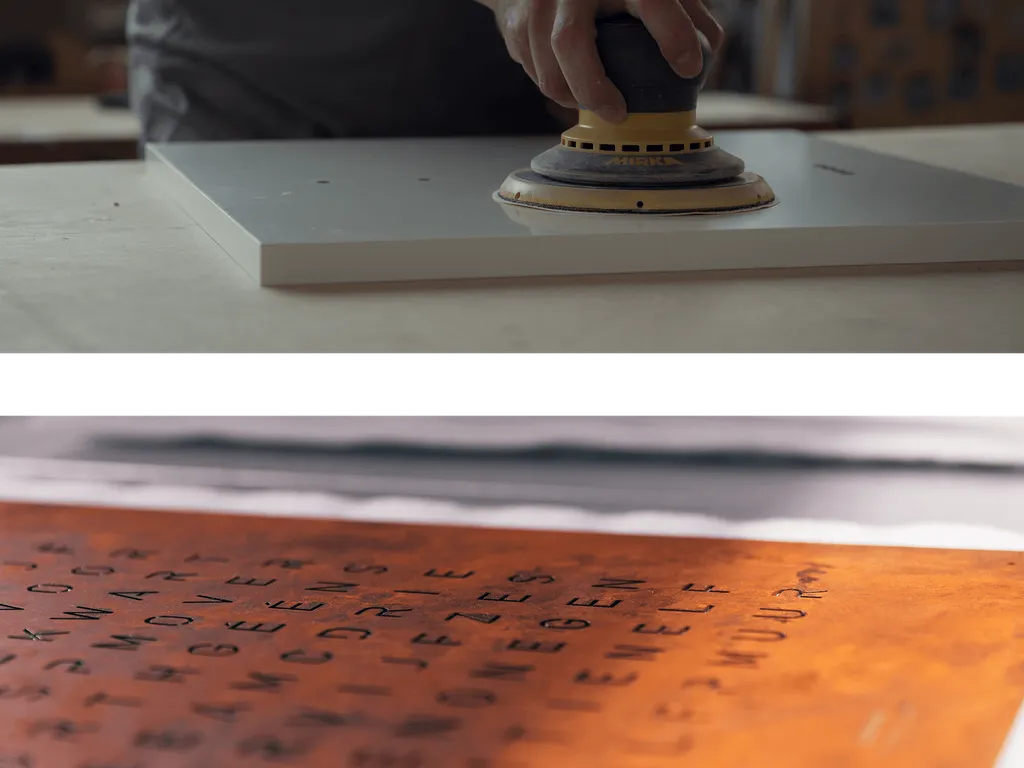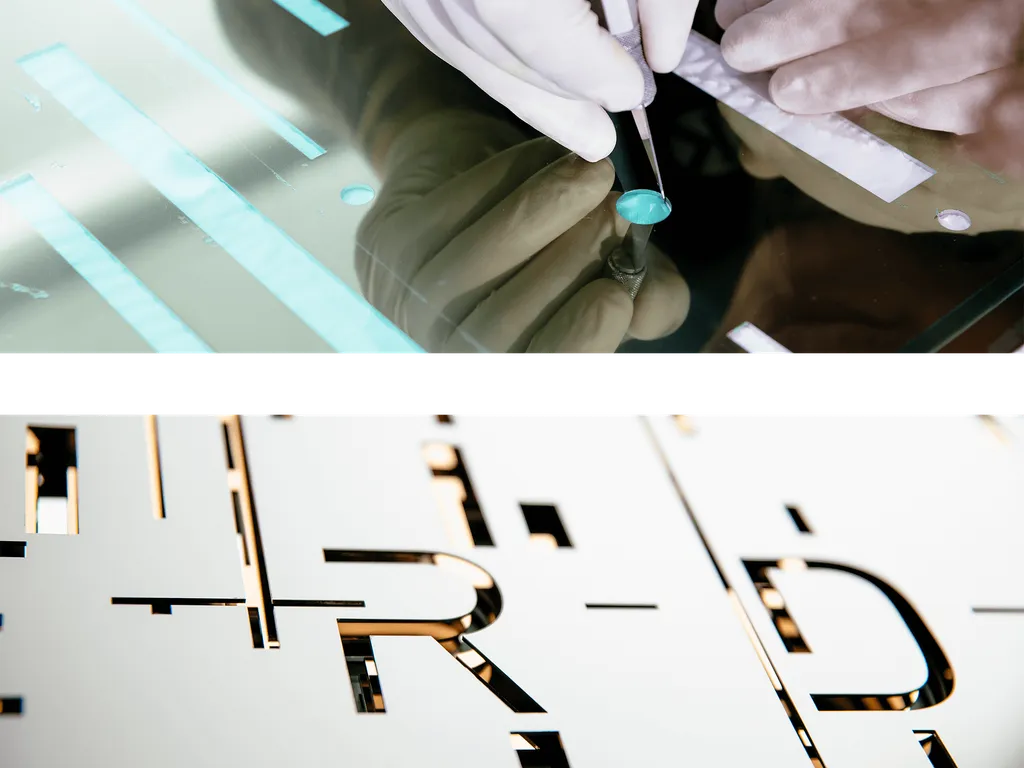MANUFACTURE
QLOCKTWO - handmade unique timepieces from Schwäbisch Gmünd since 2009. Quality Made in Germany.

It all started with a simple yet ingenious idea: a time display that depicts time as man created it. The two artists Marco Biegert and Andreas Funk worked on this idea in their studio for many years. In the end, they created three extraordinary objects that would fundamentally change the way time is displayed and gave birth to the name by which they are known today: QLOCKTWO.
Biegert & Funk introduced the CREATOR'S EDITION to preserve the core as an art object even with strong growth. From then on, their front covers were refined by artisans, exclusively numbered and signed by the two artists - making each object unique in versions with gold leaf, platinum or even slate stone.

In a regional joinery, visitors encounter a rustic charm and passionate masters of their trade, who produce the wooden carcasses with great concentration and a fine hand. These are then completed by hand in our manufactory with sophisticated technology and unique fronts and then delivered to our customers worldwide.
The most important places of our company are located at three different locations in Schwäbisch Gmünd. The headquarters with the studio of the two artists and founders Marco Biegert and Andreas Funk; our manufactory, where the corpus becomes an art object; and last but not least our Torhaus, which serves as a exhibition and sales area and was our very first store.

Once the object is revealed, the front cover is subjected to an intensive quality check. Letter by letter, every detail is checked. A gentle touch is used to ensure that all edges are smooth, free of bumps and shine flawlessly. The quality of all objects is very important to us, which is why we devote the time required to this step. We go through the process without haste, but with attention and precision. This is also reflected in our objects and their quality.
- Andreas Funk, QLOCKTWO Co-Founder

All QLOCKTWO art objects are handmade at the place of origin in Schwäbisch Gmünd. For the production of our objects we source our resources from regional suppliers. Cohesion in the region is particularly important to us, which is why we do everything we can to strengthen the city of Schwäbisch Gmünd and the region.

The great success and increasing demand also made spatial changes to the young manufactory essential. The decision was made to relocate the manufactory to the neighboring Straßdorf. The vacated premises could now be revived by the artists as a studio.

The 4TH DIMENSION was handmade in Germany in over 400 hours. It is therefore a symbol of the innovative strength, special technical precision and craftsmanship of German medium-sized companies. The object has a spectacular effect on the viewer thanks to its perfect craftsmanship.
With the QLOCKTWO 4TH DIMENSION, the two artists Biegert & Funk have created an object that makes the dimension of time tangible in a new way. United in this unique work of art, their exploration of the relationship between time and space reaches a further climax. Viewed from the right perspective, the object appears clear and unambiguous. However, if the viewer changes their perspective, time seems to disappear and the full complexity of the artwork is revealed through 2065 cut-outs. The elaborately hand-polished metal surfaces reflect what is happening in the surroundings and thus make the viewer aware of the actual here and now.

